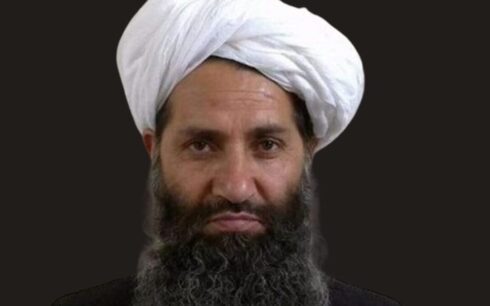UNITED NATIONS — A group of United Nations human rights experts urged the U.S. Senate on Friday to reject a proposed bill that would impose sanctions on the International Criminal Court (ICC) and cut its funding, after the tribunal issued arrest warrants for Israeli officials accused of war crimes and crimes against humanity in Gaza.
The bill, titled the “Illegitimate Court Counteraction Act,” was passed by the House of Representatives on Thursday. It seeks to penalize individuals involved in ICC investigations, including efforts to arrest or prosecute American citizens or officials from allied nations, such as Israel. The legislation would also revoke any U.S. funding for the ICC and prohibit future contributions.
In a strongly worded statement, the U.N. experts described the legislation as “shocking” and accused the United States of undermining international accountability.
“It is shocking to see a country that considers itself a champion of the rule of law trying to stymie the actions of an independent and impartial tribunal established by the international community to uphold justice,” the experts said. “Threats against the ICC promote a culture of impunity and mock decades-long efforts to prioritize law over force and atrocity.”
Historical Context and Legal Implications
The ICC, which was established in 2002 and is rooted in the legacy of the Nuremberg trials, is tasked with prosecuting individuals accused of genocide, war crimes, and crimes against humanity. The tribunal recently issued arrest warrants for Israeli Prime Minister Benjamin Netanyahu and former Defense Minister Yoav Gallant, accusing them of atrocities in Gaza.
The experts emphasized that the ICC’s work is central to ensuring accountability for the world’s most serious crimes.
“The tireless work of brave legal professionals at the ICC forms the foundation of international law’s integrity,” they said. “We call on all nations, particularly ICC member states, to uphold international standards and respect the legal professionals working to hold perpetrators of grave crimes accountable.”
The experts highlighted international standards that protect justice officials, stating that legal professionals must be able to perform their duties without intimidation or improper interference.
“Imposing sanctions on justice personnel for fulfilling their professional responsibilities is a blatant violation of human rights and strikes at the core of judicial independence and the rule of law,” the experts said.
A Warning Against Political Interference
The experts cautioned that the bill’s provisions would set a troubling precedent by politicizing international justice. They warned that sanctions against ICC officials could violate Article 70 of the Rome Statute, which governs offenses against the administration of justice, including efforts to intimidate or retaliate against court officials.
“Such actions erode public trust in the impartiality and integrity of justice, weaken global commitments to accountability, and create a dangerous precedent of double standards and impunity,” the experts said.
They urged U.S. lawmakers to reconsider the legislation and respect the ICC’s independence.
The bill, if enacted, would take effect 60 days after its passage. Critics argue that it could further isolate the United States from international legal frameworks and strain relations with ICC member states.
“The passage of this bill irreparably undermines the universality of the international justice system,” the experts said. “We urge U.S. lawmakers to uphold the rule of law and protect the independence of the Court and its personnel.”
The U.N. experts have communicated their concerns to the United States, calling for dialogue and adherence to international norms.





